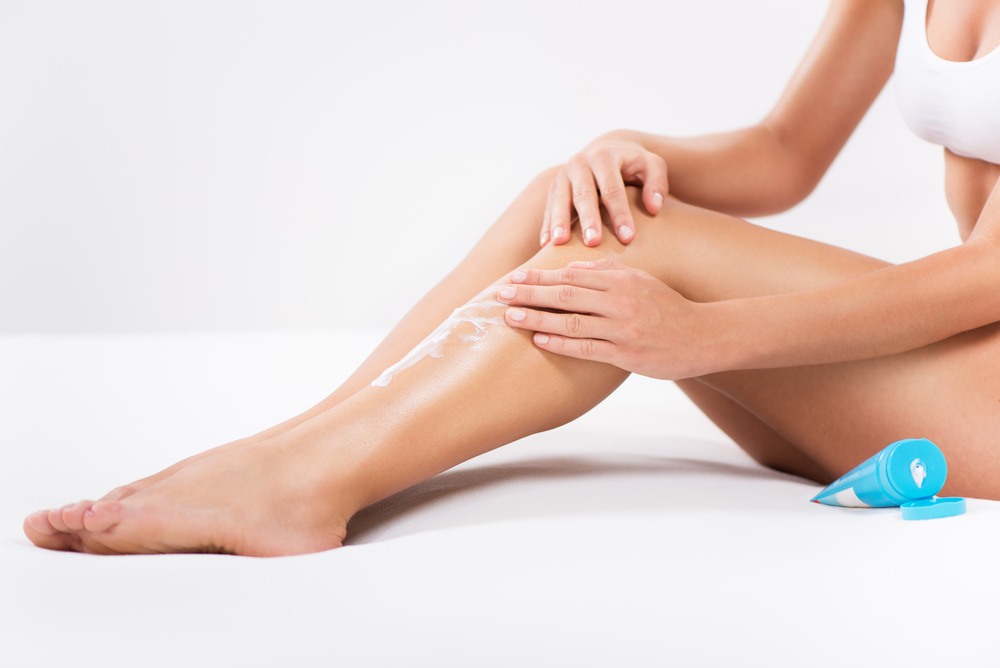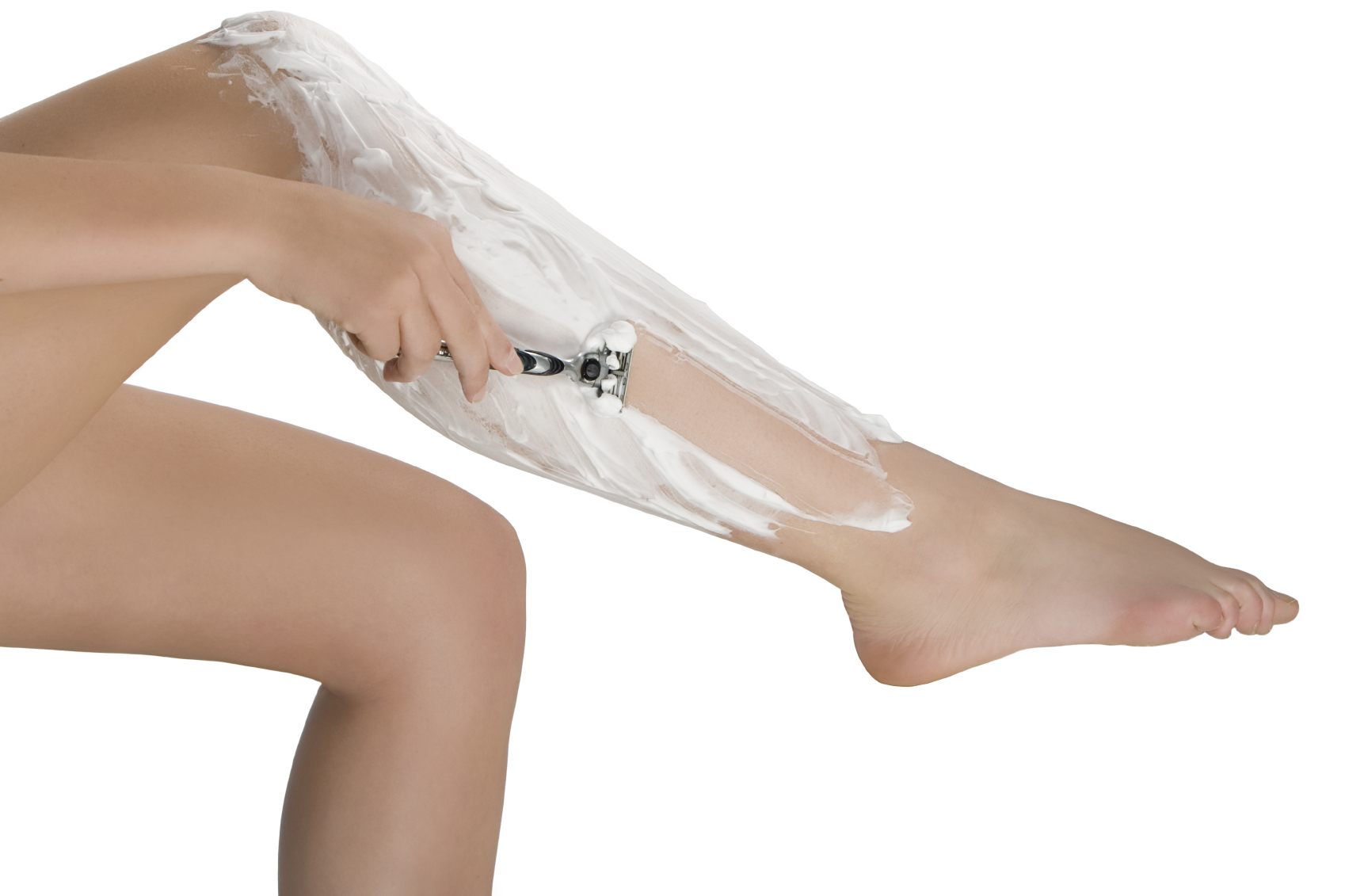It may not seem like big really big problem in the grand scheme of things, but those suffering from dry skin know just how irritating and problematic it can be. Dry and flaky skin is not the prettiest sight, and if the skin actually cracks, things can get painful as well. Since naturally dry skin can be aggravated by a number of external factors, it is important to take good care of it.
This means that you will have to put more effort than the average Joe into keeping your skin healthy and soft, but since there is no satisfying alternative, all that work won’t seem too difficult. It’s important to mention that even if your skin is not naturally dry, it can still become dry, ashy or even crack due to things like exposure to extreme weather conditions, so these tips can apply to a fairly wide variety of people.
1. Get a gentle exfoliating shower gel
You never want to go too rough when exfoliating dry skin, and you also want to stay away from heavily perfumed skin care products and those containing alcohol. A simple soap should do the trick, but it is even better to get a simple shower gel with exfoliating elements, and rub it over your skin gently for a couple of minutes before washing it off.
2. Take faster showers and don’t let it get too hot or too cold
A lot of people, particularly women, like to take their time in the shower, and this is understandable. We all want to stretch out those few moments where we are able to relax on our own in peace and quiet. However, the problem with long showers or baths is that they will strip your skin of its natural oils, making it very dry.
To avoid this you should try to keep your showers to about 10 minutes and avoid using water that is very hot or cold – think like Goldilocks and you’ll be fine. After you are done, dry yourself off by lightly patting your skin down with a soft towel.
3. Moisturize regularly after you shower
Even if you are quick in the shower, use non-perfumed hygiene products and gently dry your skin with a towel, some of the natural skin oils will be washed away, leaving you somewhat dry. This is why moisturizing is so important.
If you have issues with dry skin, you should moisturize after you wash your face and whenever your skin starts feeling dry, but special care should be taken to rub your whole body with moisturizing cream after showering. It’s also important not to go overboard and apply too much moisturizer, as this can eventually make your skin very oily and lead to acne problems.
4. Try out aromatic fruit oils
Oils from a variety of different fruits are frequently used in aromatherapy to help transfer essential oils into the skin and seal it in. These oils will help your skin hold moisture better, keeping it soft and smooth for longer. As far as skin care products go, natural oils are a very safe and effective option, and can be used to massage your body, so you get the benefit of ensuring that your skin retains moisture and loses less of its natural oils, while relaxing your muscles and reducing stress in the process. It’s best to apply fruit oils to your skin after a quick shower, while you are still slightly wet.
5. Lather up your skin well when shaving
Shaving skin without a shaving cream is the fastest way to irritate it, which can cause redness, soreness and pimples to form. Your skin should be still somewhat wet when the shaving gel is applied, and make sure to use plenty of it. You can apply more gel and use some more water if it starts getting dry.
Be sure to choose a shaving gel that is suitable for sensitive skin, as that type has only the basic active ingredients necessary for hydration and lubrication of the skin, although those with aloe vera are great for preventing irritation. It is best to apply moisturizer after you shave.
6. Avoid exposing your skin to the summer-sun
We all like to spend a lot of time outside the house during summer, and there is nothing better than stripping down to your swimwear and having some fun at the beach. However, you should avoid sunbathing for extended periods of time during the hottest hours of the day – it’s best to sunbathe later in the afternoon, as you can get the same effect without the added risk to your skin.
You should always apply sunscreen with a protective factor of 20-30 before going outside during the summer months. Longer sleeves and hats can also be your friends in the heat.
7. Eat your fruits and vegetables
In order for your body to properly regulate itself, and things like skin moisture are a part of this auto regulation process, you need to feed it the right nutrients. Vegetables and fruit contain a good deal of water, various vitamins and minerals, as well as antioxidants which can help keep your skin healthy.
Foods containing high amounts of omega-3 fatty acids and vitamin E – like olive oil, nuts and avocados – are particularly good for keeping your skin smooth, soft and well-moisturized. Whole-wheat bread and turkey are good sources of selenium, which strengthens the cells in the skin.
8. Work on reducing the stress in your life
Stress can negatively affect our health in more ways than one, and skin rashes or dry and flaky skin can be a result of prolonged periods of chronic stress. This is why you need to find an effective way of coping with emotional stress, as well as a good way to blow off some steam. A few simple solutions for reducing stress include:
- Regular physical exercise
- Combat sports or just punching a heavy bag
- Breathing exercises
- Light music
- Learning not to sulk and hold grudges
- Taking a break and doing a fun activity on the weekend
- Taking up an interesting hobby
- Having a few drinks and fun chat with some friends
Taking the time to manage your stress effectively really pays off in the long run, and not just in terms of your skin health.
9. In winter, wear a good pair of gloves and cover up
External factors like the weather can have a huge effect on your skin. Exposure to the cold, dry air and the harsh wind will dry out your skin very quickly and caused it to crack. If you have fairly sensitive skin, the low temperature can even cause redness, swelling and itchiness of the skin on your hands and other exposed areas. This is why it is important to have a good pair of gloves with good insulation. You should also try to cover up the face, feet, legs and other areas of the body the best you can.
Wearing two or more layers of clothing is a good tactic. Some hand cream and chapstick will help you keep your hands and lips from drying out and cracking. The skin around the nose can be problematic, particularly if you have a cold and keep blowing your nose, so cover the face with a scarf and apply a light layer of moisturizer on the area if begins to seem dry.
10. Don’t heat up your home too much, and make sure there is enough moisture
Some people just can’t stand the cold, and they really heat up their homes in the winter. Walking in from the cold to such a home feels like going through a magical portal that transports you from wintertime straight into the hottest of summers.
All that heat also dries out the air, so if you are the kind of person who likes to stay really warm during the winter, be sure to get a decent humidifier to ensure that the air isn’t too dry. You can add essential oils to the humidifier to get some additional benefits like destroying bacteria, opening up your sinuses and making your home smell great.
It takes some work to prevent your skin from being dry, cracked and itchy, especially if you have naturally dry skin. However, with all these effective tips, which are relatively simple to implement, you will be able to keep your skin as healthy as possible in any season and any situation.

















































